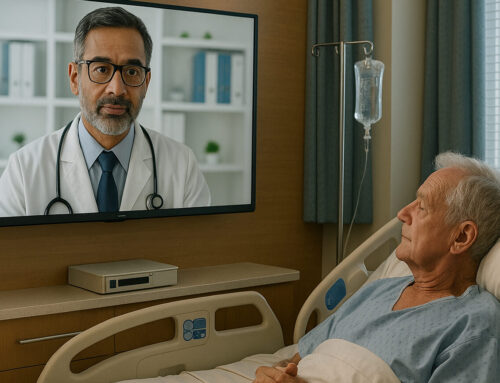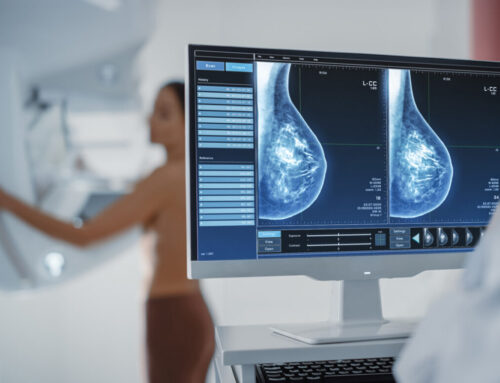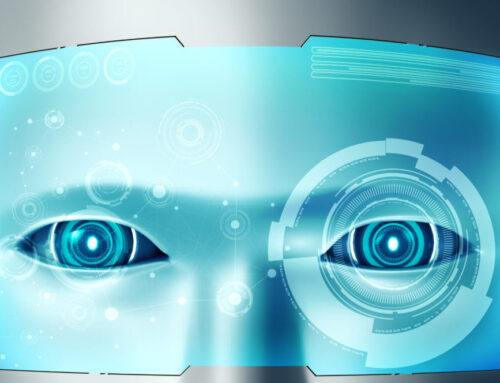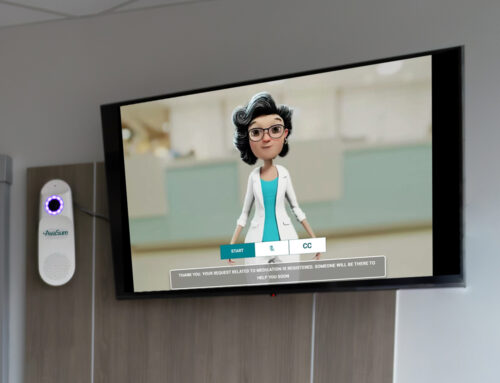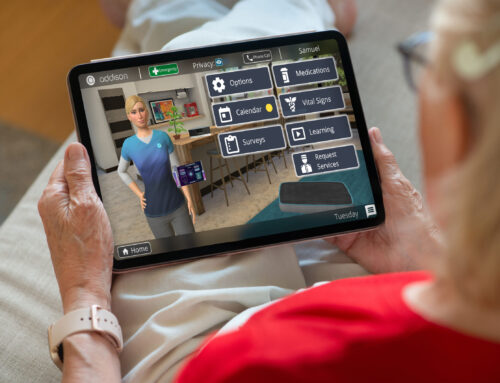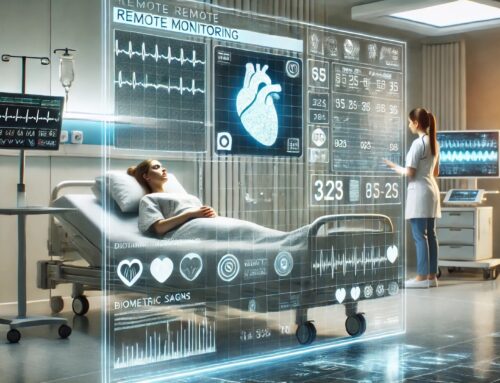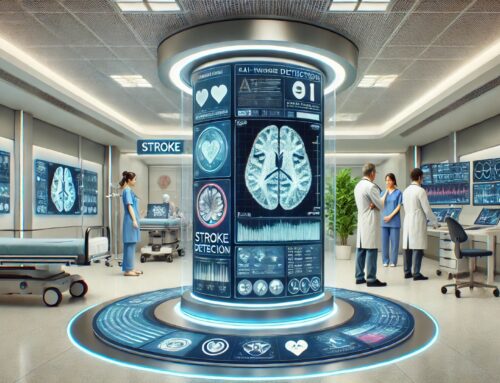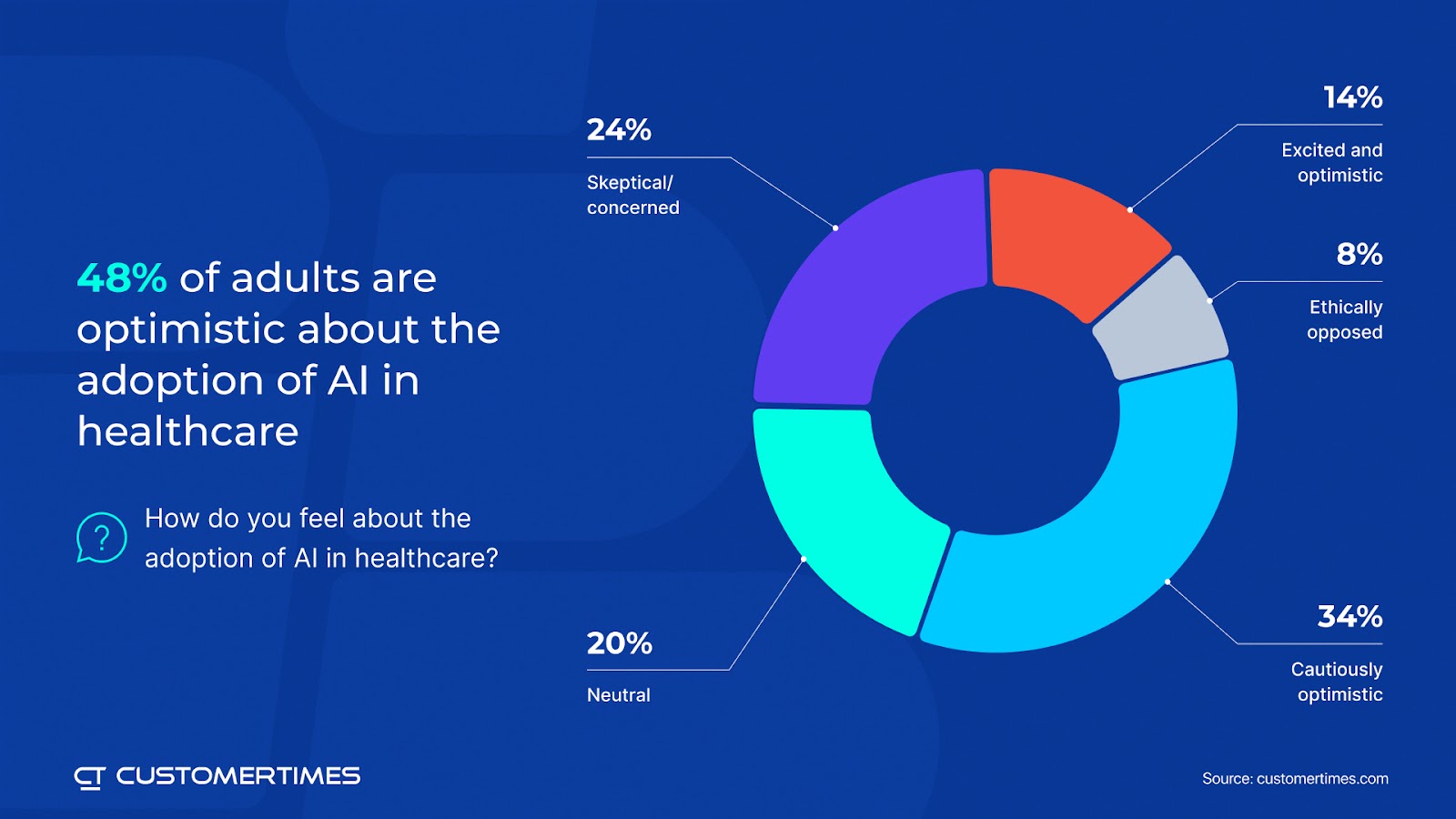 Artificial intelligence (AI) represents a promising opportunity to revolutionize healthcare, offering unprecedented improvements in diagnostics, efficiency, and patient outcomes. A recent study by Customertimes delves into American perceptions of AI’s role in healthcare, highlighting optimism and trust in these emerging technologies.
Artificial intelligence (AI) represents a promising opportunity to revolutionize healthcare, offering unprecedented improvements in diagnostics, efficiency, and patient outcomes. A recent study by Customertimes delves into American perceptions of AI’s role in healthcare, highlighting optimism and trust in these emerging technologies.
The study reveals a broad sense of optimism among Americans regarding AI’s potential to transform healthcare. Nearly half of the respondents (48%) are optimistic about the adoption of AI in healthcare. Trust in AI is also notable, with two-thirds of respondents expressing confidence in AI’s capabilities to enhance health outcomes and 17% indicating full confidence.
Perceptions of AI’s Impact on Healthcare
Americans recognize the benefits of integrating AI into healthcare. The most cited advantages include:
- Improving diagnostic accuracy (43%)
- Making healthcare more efficient (43%)
- Improving patient outcomes (29%)
- Increasing access to healthcare (48%)
These findings indicate a public understanding of AI’s potential to enhance healthcare delivery significantly. Furthermore, 62% of respondents believe machine learning will surpass human capabilities in diagnosing and treating conditions, and 53% expect AI to eventually contribute to finding cures for diseases like cancer.
AI in Diagnostics and Efficiency
AI is already demonstrating its value in diagnostics. Hospitals worldwide produce approximately 4 billion medical images annually, and AI technologies are helping doctors analyze these images more efficiently. This capability is crucial for early detection of diseases such as cancer.
Additionally, AI is streamlining administrative tasks, which often burden healthcare professionals. In the United States, hospital staff complete around 12 forms per patient. Generative AI can extract data from patient records and record notes from appointments, freeing up significant time for clinicians to focus on patient care.
AI in Drug Development
The pharmaceutical industry stands to benefit significantly from AI, which can streamline the costly and time-consuming process of drug development—currently, developing a new drug costs about $2 billion on average. AI can expedite this process by matching drug targets with molecules more efficiently.
Despite the transformative potential, only 25% of patients express excitement about AI’s role in drug development, suggesting a need for greater public awareness. However, 40% believe AI will accurately predict drug effects on the human body, and 56% expect AI to reduce drug costs over time.
AI and Healthcare Professionals
AI arrives at a critical juncture for healthcare sectors worldwide, which face workforce shortages and rising costs. AI technologies can alleviate these pressures by automating administrative tasks like appointment scheduling and medical coding, allowing healthcare professionals to devote more time to patient care.
The study indicates that patients understand AI’s role in supporting, rather than replacing, healthcare professionals. A significant 43% of respondents do not foresee AI causing layoffs, with a third believing AI will save jobs. Additionally, 62% of patients do not expect AI to replace doctors soon but rather to enhance their capabilities.
Key Takeaways
Public optimism and trust in AI’s role in healthcare are encouraging, reflecting a readiness to embrace these technological advancements. Healthcare professionals can enhance their efficiency by leveraging AI, benefiting patients and society.
Read the full study for more details on what Americans think of AI in Healthcare.

